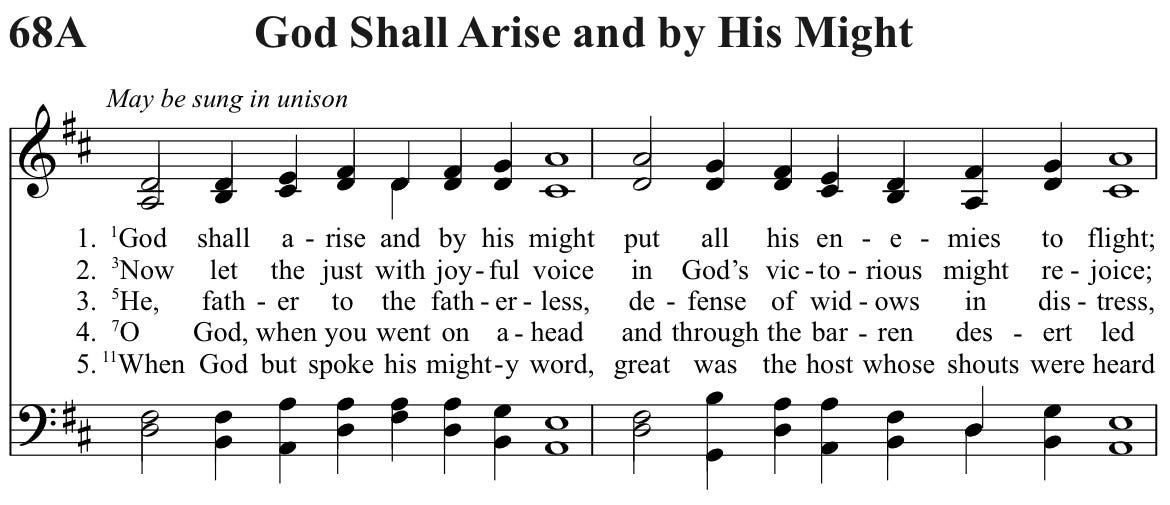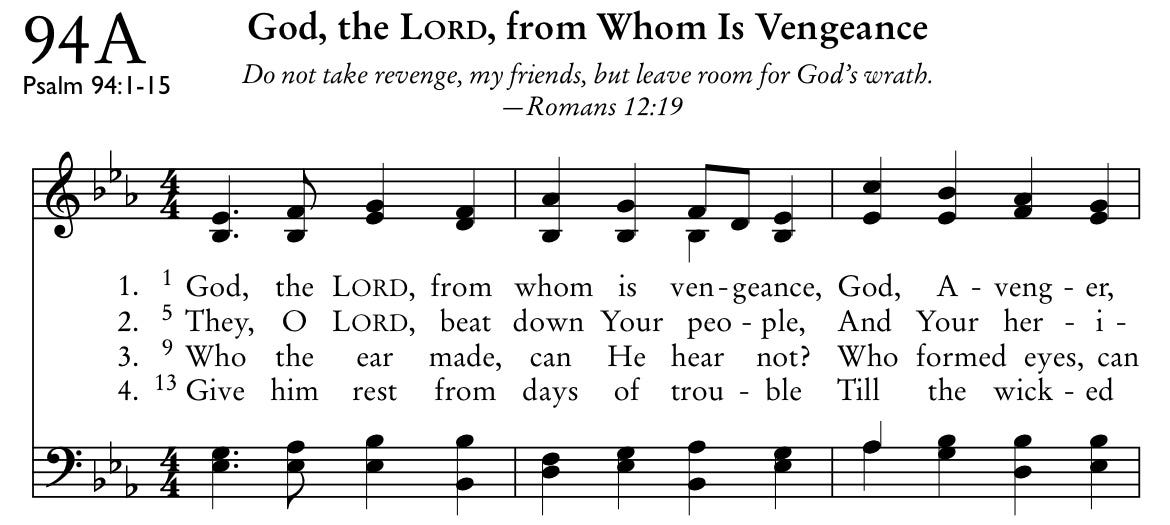
Although the best comfort comes from God’s word, Christians have for centuries reflected on the hardships of life in light of the truth of God’s word in those seasons and written beautiful poetry shaped by the ideas and principles of the Scripture to find perspective and hope in God.
God’s people have never been strangers to sorrow and suffering. In His final instructions in the Upper Room, our Saviour warned us,
Behold, the hour is coming, indeed it has come, when you will be scattered, each to his own home, and will leave me alone. Yet I am not alone, for the Father is with me. I have said these things to you, that in me you may have peace. In the world you will have tribulation. But take heart; I have overcome the world (John 16:32–33).
Those words had particular application to the scattering of the sheep after the Shepherd was struck (cf. Zech. 13:7, Matt. 26:31) in His arrest by the Jewish Priests and condemnation by the Romans, but nonetheless we have come to know all to well the abiding application and truth of the Saviour’s words: In the world you will have tribulation. But take heart; I have overcome the world.
Affliction and tribulation are not unique to the New Covenant Church. The faithful in the Hebrew Church suffered greatly at the hands of their pagan neighbors and the wicked within the Old Covenant Church as well.
The ancient foe of God’s people works with hateful cunning and power to drive God’s people to despair. In the face of the rage of the devil and his minions, God’s people have for millennia cried to Him in song seeking both aid and solace, for they have learned: He who watches over Israel neither slumbers nor sleeps.
During my time at Grove City College, I spent many hours in Harbison Chapel playing hymns and psalms. Apart from reading the Scripture, there are few things more spiritually fruitful than meditating upon the prayers and praises offered by God’s people from of old.
I. Comfort from the Psalter
Growing up Lutheran, we chanted from the Psalter each Lord’s Day, but Presbyterians have a special love for the Psalter and singing from it is an essential part of the worship of God. It is right that in sorrow we turn first to the Psalter for words to sing and pray, since they are words given by God’s Holy Spirit to the Church expressly for our use in prayer and singing.
The Old Covenant saints were often acquainted with affliction at the hands of the wicked, and their experiences can teach us how to suffer and grieve well as God’s people. In their sorrows, the Old Covenant saints found comfort from God’s coming victory. The Trinity Psalter Hymnal provides an excellent resource for Christians who are grieving and lamenting to call out to God in faith and hope.
Psalm 68
Although the enemies of God’s people may have their day and inflict horrible wounds upon God’s holy ones, the psalmist instructs us to draw comfort from the certain glorious triumph of our God.

In Psalm 68, David looks forward to the day when all those who hate God and His people will be scattered and perish and God restores joy to His people in His glory:
God shall arise, and by His might Put all His enemies to flight;
In conquest shall He quell them. Let those who hate Him, scattered, flee
Before His glorious majesty, For God Himself shall fell them.
Just as the wind drives smoke away, So God will scatter the array
Of those who evil cherish. As wax that melts before the fire,
So vanquished by God’s dreadful ire, Shall all the wicked perish.But let the just with joyful voice In God’s victorious might rejoice;
Let them exult before Him! O sing to God, His praise proclaim
And raise a Psalm unto His Name; In joyful songs adore Him.
Lift up your voice and sing aloud To Him who rides upon the clouds
High in the spacious heavens. The LORD, that is His glorious Name.
Sing unto Him with loud acclaim; To Him be glory given.
The Trinity Psalter Hymnal uses a setting from the Genevan Psalter for Psalm 68, which is both profound and powerful in the way it emphasizes the words and gives hope that God will set all things right.
Psalm 80
As Book III of the Psalter (Psalms 73-89) draws to a close, the psalms seem to focus increasingly on the plight of God’s people as the pagans from the nations come in and oppress the servants of the Living God. Book III (Psalm 89) even seems to end with the question, “Is God still King?”
Psalm 80 calls out from deep anguish to God as the “Shepherd of Israel.” The psalmist (Asaph) reflects on God’s mighty throne “above the cherubim” and on God’s past grace toward His Church: “you who led Joseph like a flock.”

While God had planted His people in a good land and shown great care for them in the past, the psalmist quickly turns his attention to the urgent need for restoration and help, because the nations have come in and ravaged God’s helpless people (organ setting):
A strife you have made us to neighbors around,
Our foes in their laughter and scoffing abound.
O LORD God of hosts, in your mercy restore,
And we shall be saved when your face shines once more.
When the enemies of God have come into the Church, His people can be assured their Redeemer will restore His people and give them peace afresh.
Psalm 94
In our grief and sorrow at injustice, God’s people’s thoughts inevitably turn to vengeance. But God has reserved vengeance for Himself (Cf. Deut. 32:25, Rom 13:4), and so He has provided psalms and prayers for His people to use for this very purpose. One of them is Psalm 94. The Book of Psalms for Worship contains an excellent setting (Tune: Austria):

We have already witnessed the media transition from reporting on events to now seeming to imply the victims of a mentally ill woman are somehow to blame for an act of unspeakable horror because she comes from a more culturally acceptable community of people than those who are part of a Christian school.
As the wicked use the slaughter of children and elderly to advance an agenda of demonic mutilation of the human body and effacing of the imago Dei, God has provided in the Psalter words both of abundant comfort and prayer:
God, the LORD, from whom is vengeance, God, Avenger, O shine forth!
Judge of all the earth, O rise up! Pay the proud what they are worth.
O LORD, how long will the wicked, How long will the wicked gloat?
From their mouths they pour out violence, Of themselves all wicked boast.Who the ear made, can He hear not? Who formed eyes, can He not see?
Who warns nations, will He strike not? Who men teaches, knows not He?
All the thoughts of men the LORD knows; Knows that but a breath are they.
Blessed the man whom You reprove, LORD; Through Your law You point his way.
God is aware the wicked seem to be on the ascent and they sit in power for too long. But the saint can take heart, God sees, hears, warns, and teaches. And one day God will give His people rest:
Give him rest from days of trouble Till the wicked are brought down.
For the LORD stays with His people, He will not forsake His own.
Righteous judgments will be rendered, Justice will return again;
Those of upright heart will follow In the way of justice then.
The psalter is our best comfort in affliction, because the words come from God Himself. It is said that when Martin Luther, when he received news of his father’s death, he took his Psalter and went to his room for the rest of the day, and there he found the sufficiency of God’s comfort.
As we sing the Psalter in affliction, we are joining a great company of God’s people stretching back thousands of years who looked to God and His word when they lack the strength to press on.
II. Comfort from the Hymnal
Although the best comfort comes from God’s word, Christians have for centuries reflected on the hardships of life in light of the truth of God’s word in those seasons and written beautiful poetry shaped by the ideas and principles of the Scripture to find perspective and hope in God.
This Is My Father’s World
A well-loved hymn whose third stanza seems especially appropriate for the past week (organ setting):
This is my Father’s world: O let me ne’er forget
That though the wrong seems oft so strong,
God is the Ruler yet. This is my Father’s World!
The battle is not done. Jesus who died shall be satisfied.
And earth and heaven be one.
The reign of God does not immediately nullify our sadness and sorrow. But Christ who died will make all things new and will have the last say. These words point us forward to one of the closing visions of the Scripture:
And I saw the holy city, new Jerusalem, coming down out of heaven from God, prepared as a bride adorned for her husband. And I heard a loud voice from the throne saying, “Behold, the dwelling place of God is with man. He will dwell with them, and they will be his people, and God himself will be with them as their God. He will wipe away every tear from their eyes, and death shall be no more, neither shall there be mourning, nor crying, nor pain anymore, for the former things have passed away” (Rev. 21:2–4).
The Scripture does not tell us our grief is something to suppress or to dismiss as “worldly,” but God does promise us there will come a day when all the causes of grief and sorrow are removed forever. That is something to sing about!

